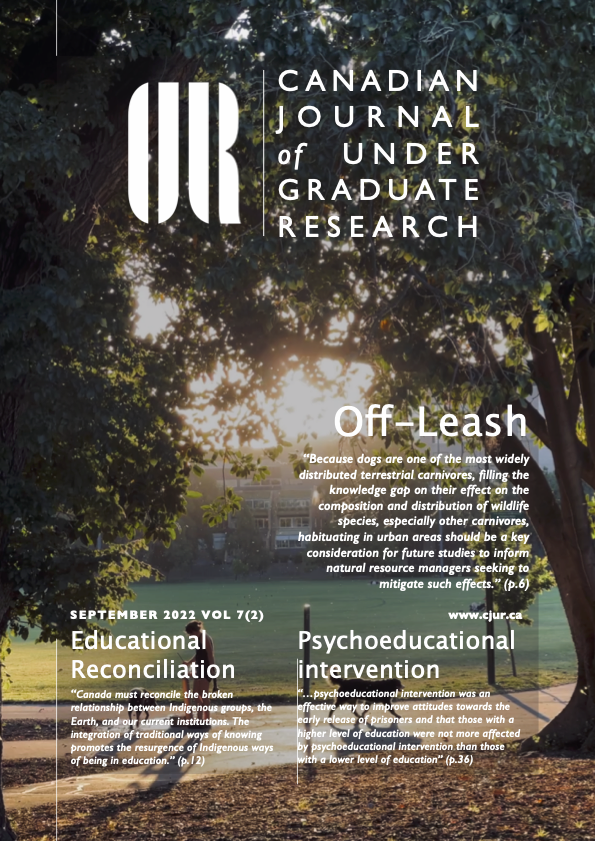Indigenous Sex Workers and Canadian Outreach Programs
Abstract
Indigenous sex workers are subjected to the normalization of colonial violence. This colonial violence is perpetuated through the intervention of state actors stripping their agency through state law. Outreach programs in Canada are vital resources in ensuring that Indigenous sex workers are provided with a safe working environment through a human rights framework and occupational safety precautions. How outreach programs resist or invoke Bill C-36 or the Protection of Communities and Exploited Persons Act (PCEPA) is crucial in discovering whether or not they create a safe environment for Indigenous sex workers. In this article, the outreach programs Safe Harbour Outreach Project (SHOP), Maggie’s Toronto, Hope Restored Canada, PACE Society, and Exit Doors Here will be researched. Moreover, their connection to state law will be reviewed from an Indigenous feminist lens to discover whether or not they work from a decolonial framework or invoke state control over Indigenous sex workers. The following questions are to be asked of the outreach programs, are they positioned as prohibitionists or are they aiming for sex work decriminalization? Do they have culturally specific programs in place? Do they respect and support the voices of Indigenous sex workers? And lastly, are there any barriers in place which can limit access to these programs? This article is premised on providing vital information in terms of how outreach programs can improve their relations with Indigenous sex workers from an Indigenous feminist perspective.
Published
Issue
Section
License
Authors who publish with this journal agree to the following terms:
- Authors retain copyright and grant the journal right of first publication with the work simultaneously licensed under a Creative Commons Attribution License that allows others to share the work with an acknowledgement of the work's authorship and initial publication in this journal.
- Authors are able to enter into separate, additional contractual arrangements for the non-exclusive distribution of the journal's published version of the work (e.g., post it to an institutional repository or publish it in a book), with an acknowledgement of its initial publication in this journal.
- Authors are permitted and encouraged to post their work online (e.g., in institutional repositories or on their website) prior to and during the submission process, as it can lead to productive exchanges, as well as earlier and greater citation of published work (See The Effect of Open Access).

